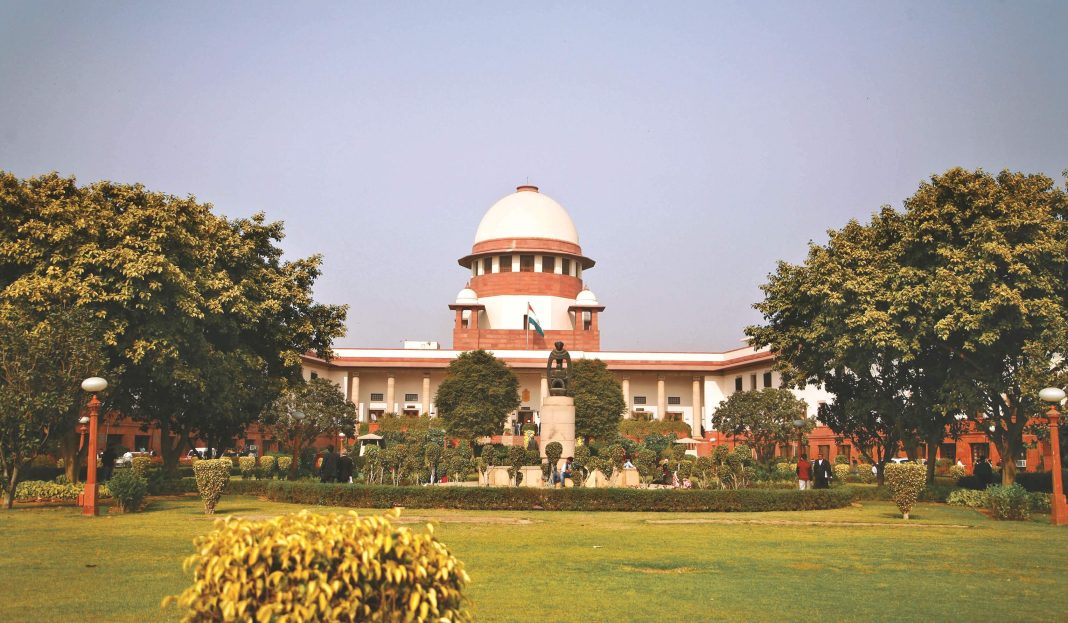The Supreme Court has ruled that the Representation of the People Act, 1950 and the Delimitation Act, 2002 were not applicable to the Scheduled Area in absence of the notification issued by the Governor of the State under Clause 5(1) of the Fifth Schedule of the Constitution of India.
The Bench of Justice A.S. Oka and Justice Rajesh Bindal last week rejected a writ petition filed by Adivasis for Social and Human Rights Action, noting that there was absolutely ‘no merit’ in the appeal and that the High Court was right in rejecting the petition.
The Bench, however, refrained from imposing cost noting that the appellant was a society working for the welfare of indigenous people.
It said under sub clause (e) of Clause (1) of Article 19 of the Constitution, every citizen had a right to reside and settle in any part of India. However by making a law, reasonable restrictions can be put on the said Fundamental Right as provided in Clause (5) of Article 19.
The Apex Court further dismissed the argument that the fifth schedule of the Constitution took away the right of a non-tribal person to settle down and vote in a scheduled area.
It said the argument that the Fifth Schedule was a law made by Parliament was misconceived. Even assuming that the Fifth Schedule was a law, it did not put any constraints on the exercise of Fundamental Rights under Article 19(1) of the Constitution of India, added the Bench.
As per the Apex Court, the right to vote was governed by Part III of the 1950 Act. Every eligible voter was entitled to be registered in the electoral roll of a constituency, in which he was ordinarily residing. Any person eligible to vote who was ordinarily residing in the Scheduled Area, had a right to vote, even if he was a non-Tribal, it observed.
The petition had challenged the Odisha High Court order on the grounds that in a Scheduled Area, no one other than the members of the Scheduled Tribes have the right to settle down.
This was particularly with respect to the district of Sundargarh in Orissa, which was declared a Scheduled Area on December 31, 1977 by the President of India, in exercise of power under Clause 6(2) of the Fifth Schedule of the Constitution.
It was also argued in the writ petition that those who were not members of the Scheduled Tribes, but still residing in the Scheduled Area, were unlawful occupants and dis-entitled to exercise their right to vote in any constituency in the Scheduled Area.
The petition sought a declaration that every constituency in the Scheduled Area is a reserved constituency under Articles 330 and 332 of the Constitution of India. It was also contended that no candidate, other than the candidates belonging to the Scheduled Tribes, should have the right to contest the elections of the Legislative Assembly or the Lok Sabha in the Scheduled Area.
Another contention raised in the petition was that the Representation of the People Act, 1950 and the Delimitation Act, 2002 are not applicable to the Scheduled Area in absence of the notification issued by the Governor of the State under Clause 5(1) of the Fifth Schedule. The High Court dismissed the writ petition.
(Case title: Adivasis for Social and Human Rights Action vs Union of India and Ors)


